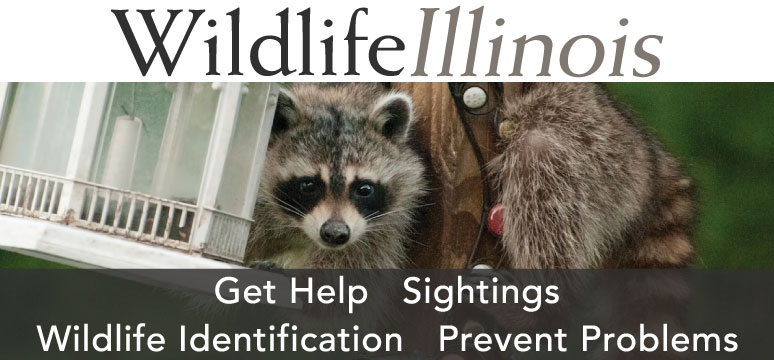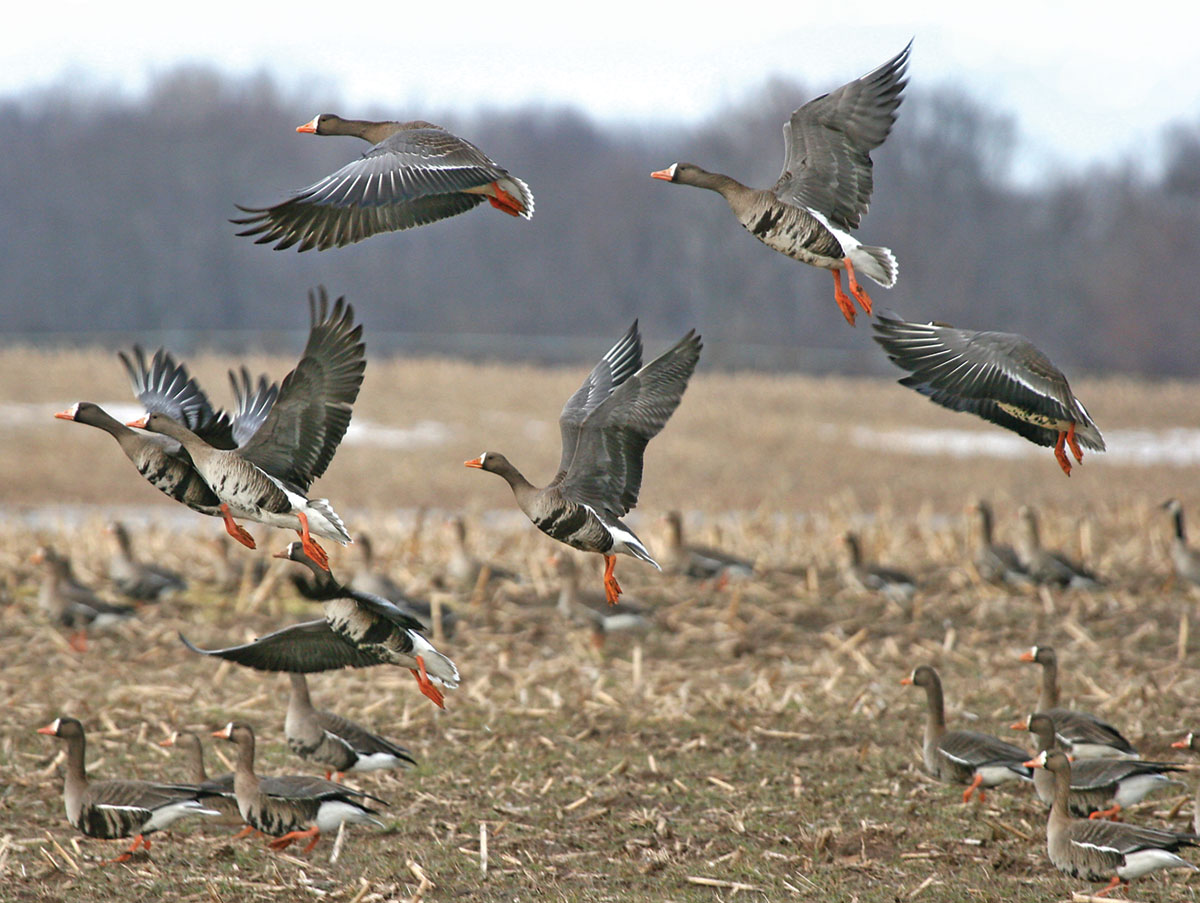
White-fronted Geese. Photo by Michelle M. Horath, Forbes Biological Station, Illinois Natural History Survey.


White-fronted Geese. Photo by Michelle M. Horath, Forbes Biological Station, Illinois Natural History Survey.
It was hunting season and Brian was reviewing his daily paperwork and planning the next day’s enforcement activity. Brian had been a Conservation Police Officer (CPO) for 10 years and was a seasoned veteran. At about 6 p.m. he received a call from an individual informing of illegal waterfowl hunting activity in the area. The informant advised he had stopped by a field that day where waterfowl hunting was occurring to speak with the hunters about their success. While at the field, he observed five hunters hunting from standing corn and shooting geese over a picked portion of the field. In that picked portion he also observed a large amount of corn scattered directly in front of the hunters. The informant advised Brian that he was told that the group planned on hunting first thing the next morning.
Everyone who hunts knows that baiting waterfowl is illegal in Illinois and carries a hefty fine, jail time, or both. Brian knew he would have to work fast, and needed help, to catch and arrest the suspects. At 4 a.m. the next morning Brian and two other CPOs were in place and ready. Like clockwork, vehicles arrived in the area before day light, and the hunting suspects moved into place.
Once legal shooting hours began and it was established the suspects were illegally hunting geese over bait, Brian made his approach and brought the hunt to a close. As usual, the excuses began to fly and no one knew anything about the bait. As Brian continued his questioning, things started to not add up. The hunters were cooperative and Brian began to buy into their story that an individual stopped by the previous afternoon and requested to hunt with them. The individual was told “no” and was asked to leave. Coincidentally the name of the individual that had stopped by was the same as the informant who had called Brian.
Fast forward to the interview room at the county jail with the original informant. Seems as though he was upset that he was not allowed to hunt the previous day and wanted some type of revenge. He decided that he would call and report the baiting situation, then go out later with bags of corn and bait the field, thus teaching the hunters a lesson.
The informant did not think about the Illinois Compiled Statutes, specifically the Hunter or Fisherman Interference Act (720 ILCS 5/48-3) which states in part: A person commits hunter or fisherman interference when he or she intentionally or knowingly obstructs or interferes with the lawful taking of wildlife or aquatic life by another person with the specific intent to prevent that lawful taking. The Hunter or Fisherman Interference Act carries a penalty of a Class B misdemeanor for the first offense and a Class A misdemeanor for a second or subsequent offense. Needless to say, justice prevailed and the “would be” informant was charged with multiple violations.
See Illinois Compiled Statutes Criminal Code of 2012—720 ILCS 5 (48-3).
Retired Lieutenant Eric Bumgarner spent 24 years with the Illinois Conservation Police. Eric is an avid outdoorsman and has a passion for protecting the natural resources.
Submit a question for the author